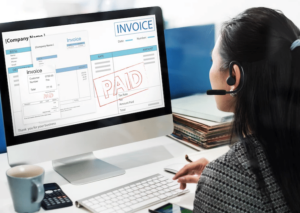Introduction
To effectively manage a micro business, opt for reliable accounting software that streamlines financial tasks and saves you time. A solution that’s intuitive is suitable, so you can focus on growing your business rather than getting stuck with complicated tools. A good choice ensures you stay organized and on top of your finances without spending hours on manual calculations.
By choosing the right platform, you ensure that your financial management is organized, accurate, and stress-free. The right software gives you the confidence to stay on top of taxes, cash flow, and reporting, so you always have a clear view of your business’s performance.
1. Xero
Consider Xero a top choice for micro businesses because it offers user-friendly interfaces and streamlined financial management. Xero’s robust reporting tools that provide valuable insights for making informed business decisions.
Pros
- Affordable pricing for small businesses
- Efficient bank reconciliation for accurate records
- Customizable invoices for a professional look
- Scalable for future business growth
Cons
- Complex payroll setup for beginners
- Occasional bugs affect functionality
- Restricted offline access when internet fails
- Slow software updates on certain integrations
- Explore Xero’s mobile app for on-the-go financial management
- Track expenses effortlessly with automated receipt capture
- Customize invoices easily with templates and branding
- Access real-time financial reports to monitor business health
- Sync bank accounts for automatic transaction imports
- Manage payroll with built-in features for simplicity
- Automate recurring billing to save time on invoices
- Utilize multi-currency support for global transactions
2. FreshBooks
If you want a software that simplifies your accounting, offering an intuitive interface that saves you time, consider FreshBooks. FreshBooks scales with your micro-business, keeping your financial data organized and accessible.
Pros
- Efficient automation reducing manual data entry
- Accessible on mobile for on-the-go management
- Reliable cloud storage for data security
- Affordable pricing suits small business budgets
Cons
- Complex features may confuse new users initially
- Inadequate inventory management options for product-heavy businesses
- Additional costs for adding more users
- Offline access is not available for all tasks
- Utilize FreshBooks to simplify your invoicing process and get paid faster
- Track expenses effortlessly with FreshBooks’ automatic expense categorization
- Generate financial reports with ease using FreshBooks’ customizable report features
- Sync FreshBooks with your bank to track income and expenses seamlessly
- Automate recurring invoices and payment reminders to save time
- Access FreshBooks from any device with cloud-based accounting
- Use time-tracking tools to accurately bill clients for hours worked
3. Zoho Books
When you want a complete accounting solution that simplifies managing your finances opt for Zoho Books. You enjoy seamless integration with other Zoho apps, making your workflow easier.
Pros
- Comprehensive reporting tools help track financial health
- Customizable invoices enhance business branding and professionalism
- Accurate tax calculations reduce errors and ensure compliance
Cons
- Confusing setup process can frustrate new users
- Steep learning curve may slow down early adoption
- Restricted access to advanced features in lower-tier plans
- Manage finances with real-time data syncing across multiple devices
- Track income and expenses automatically through bank feeds
- Generate detailed financial reports for better business insights
- Simplify invoicing with customizable templates for client needs
- Sync Zoho Books with payment gateways for seamless transactions
- Monitor tax liabilities with built-in tax compliance tools
- Ensure data protection with advanced encryption and secure backups
>>> PRO TIPS: How to Set Up Quickbooks
4. Wave
Choose Wave for your micro business because it offers free accounting, invoicing, and receipt scanning. Wave also offers a simple interface that saves time and helps you manage your finances effectively.
Pros
- Easy-to-use interface, ideal for small business owners
- Seamless integration with third-party apps like PayPal
- Efficient expense tracking for organized financial management
- Multi-currency support benefits businesses with global transactions
Cons
- Recurring billing setup is slightly complicated for beginners
- Customizable tax features are not comprehensive
- No offline mode limits usability without internet connection
- Create and customize professional invoices with Wave’s intuitive tools
- Connect your bank accounts and sync data effortlessly in real-time
- Receive payments online directly through Wave’s invoice platform
- Generate financial reports like profit and loss statements instantly
- Set up automatic payment reminders to clients
- Collaborate with your accountant by easily sharing financial data
- Store all financial records securely using Wave’s cloud-based system
5. Sage
When you run a micro business, opt for Sage as a suitable tool to simplify accounting for your micro business. You access essential tools tailored to your business size, ensuring that your finances remain in order while saving you time and effort daily.
Pros
- Flexible features streamline financial management
- Efficient reporting generates insightful financial data
- Accurate tracking of expenses improves budgeting
- Detailed support offers reliable assistance
Cons
- Limited mobile functionality restricts on-the-go access
- Occasional bugs disrupt workflow
- Expensive pricing can strain a small budget
- Occasional glitches affect performance
- High resource usage impacts system speed
- Access Sage easily via the cloud from any location
- Manage cash flow efficiently with real-time monitoring tools
- Track inventory accurately and avoid stockouts or overstocking
- Use role-based permissions to control access to financial data
- Track expenses by categorizing and attaching receipts effectively
- Reconcile bank accounts quickly with automated transaction matching
- Handle taxes confidently with automatic tax calculation features
6. NetSuite (FKA NetLedger)
Opt for NetSuite as your accounting software for micro business because it offers robust features for financial management, scalability, and integration, tailored to support your business growth and efficiency.
Pros
- Efficient integration with various business functions
- Advanced reporting tools for detailed insights
- Robust data security measures in place
- Streamlined processes to enhance productivity
Cons
- Complex setup process may be overwhelming
- High customization cost may be prohibitive
- Resource-intensive requiring robust hardware
- Explore financial reports with customizable dashboards for real-time insights
- Track expenses and income through integrated expense management features
- Simplify tax compliance with automated tax calculations and filings
- Access a centralized platform for managing sales, finance, and inventory
- Automate invoicing processes to reduce manual entry and errors
- Utilize multi-currency support for global transactions and reporting
7. Kashoo Cloud Accounting
Kashoo Cloud Accounting offers simple, user-friendly features tailored for micro businesses. You enjoy real-time financial tracking, easy expense management, and straightforward invoicing.
Pros
- Flexible features suit small businesses
- Affordable pricing fits tight budgets
- Comprehensive reports aid decision-making
- Seamless integration with bank accounts
Cons
- Occasional glitches in software updates
- Minimal mobile app functionality hinders usability
- Inconsistent performance during high traffic
- No payroll management options available
- Complex setup may confuse new users
- Automates expense tracking to save time and reduce errors
- Generates detailed financial reports for easy analysis
- Integrates smoothly with bank accounts for automatic transactions
- Supports multi-currency transactions to manage international business
- Offers user-friendly dashboards for quick insights into finances
- Enables mobile access for managing finances on the go
8. ZipBooks
ZipBooks stands out for you if you seek an intuitive, user-friendly accounting solution. You gain easy invoicing, expense tracking, and financial reporting, all without requiring advanced accounting knowledge.
Pros
- Efficient invoice management
- Streamlined expense tracking
- Regular updates and improvements
Cons
- Slow performance with large data
- Inadequate data export options
- Minimal customization options
- Utilize ZipBooks for invoicing clients quickly and efficiently
- Manage expenses by linking bank accounts directly
- Track time spent on projects effortlessly with built-in timers
- Customize invoice templates to match your brand
- Automate recurring billing for subscription-based services
- Sync data across multiple devices seamlessly
- Collaborate with team members on financial tasks
9. ZarMoney
When choosing ZarMoney for your micro business, you benefit from its comprehensive features. You manage invoices, track expenses, and streamline accounting tasks efficiently, boosting productivity.
Pros
- Intuitive interface simplifies bookkeeping tasks
- Robust support offers quick resolution for issues
- Seamless synchronization keeps records updated
Cons
- Limited automation leads to manual entry tasks
- Clunky navigation hinders smooth user experience
- Occasional bugs affect functionality
- Complicated tax reporting may confuse users
- Offer cloud-based access for financial management
- Integrate payment gateways for seamless transactions
- Generate detailed financial reports for insights
- Manage inventory with built-in tools
- Simplify tax preparation with organized records
- Support multi-currency transactions for global reach
- Sync bank accounts for real-time updates
- Provide user-friendly dashboard for easy navigation
10. CLEAR Books
CLEAR Books is a top choice for micro businesses due to its intuitive design, ease of use, and comprehensive features. You get efficient financial management and reliable customer support, all within budget.
Pros
- Efficient interface streamlines bookkeeping tasks
- Affordable pricing suits tight budgets
- Quick setup makes onboarding smooth
- Robust reporting aids in decision-making
Cons
- Slower updates might delay improvements
- Minimal integrations with third-party tools
- Occasional bugs affect user experience
- Access financial books from anywhere with Clear Books
- Invite unlimited users and manage permissions easily.
- Track VAT and submit returns with the right plan
- Generate invoices and payment reminders automatically
- Manage CIS requirements for contractors and subcontractors
- Enjoy cloud-based functionality for real-time data updates
- Access offline mode using the mobile app version
- Receive training support with online or in-person sessions
Overview of the Best Accounting Software for Micro Business

When choosing the best accounting software for a micro business, it’s important to consider ease of use, essential features, and cost. You’ll also find Xero to be a strong contender, especially for value, with easy cloud-based access for on-the-go management. Zoho Books offers a well-rounded option, especially for small business owners who require mobile access to its financial data. Wave Accounting is ideal if you’re looking for free software with features essential for freelancers.
>>> GET STARTED: How to Find Free Invoicing Software
How to Choose the Best Accounting Software for Micro Business
To select the best accounting software for Micro business:
- Define your business’s specific accounting needs and requirements
- Research software options that align with your business goals
- Check reviews and ratings from credible sources for user experiences
- Compare pricing plans to match your budget and software features
- Test software through available free trials or demo versions
- Evaluate the ease of use for your team and business operations
- Confirm that the software provides customer support and training resources
- Verify that the software integrates with other tools you use in your business
- Select the software that meets your needs and fits your business growth
Pros & Cons of Best Accounting Software for Micro Business
Pros
- User-friendly interface making navigation straightforward
- Affordable pricing options suitable for small business budgets
- Customizable features adapt to specific business needs
- Cloud-based access allows work from anywhere
- Quick setup process gets businesses running faster
Cons
- Complex learning curve for advanced features or reports
- Limited features may restricting growing business needs
- Occasional software bugs can interrupt workflow
- Additional costs for premium features increase expenses
What to Watch Out For

- Ease of Use
- Scalability
- Cost
- Security
- Customization
Pro Tips
Check out these pro tips before you select a suitable accounting software for micro business:
- Identify your specific accounting needs first
- Ensure it supports cloud-based functionality
- Check if it integrates with existing tools
- Select software with real-time reporting features
- Look for automated invoicing and billing
- Confirm it offers robust customer support options
- Evaluate the cost and hidden fees
- Review user-friendly interface and navigation
- Ensure compliance with tax regulations
Recap
When choosing accounting software for your micro business, you need to focus on tools that simplify managing your finances without overwhelming you. You want something that handles invoicing, expenses, and tax preparation with ease, helping you stay organized. Finding software that matches your business needs ensures you maintain control over your cash flow while saving you time.













